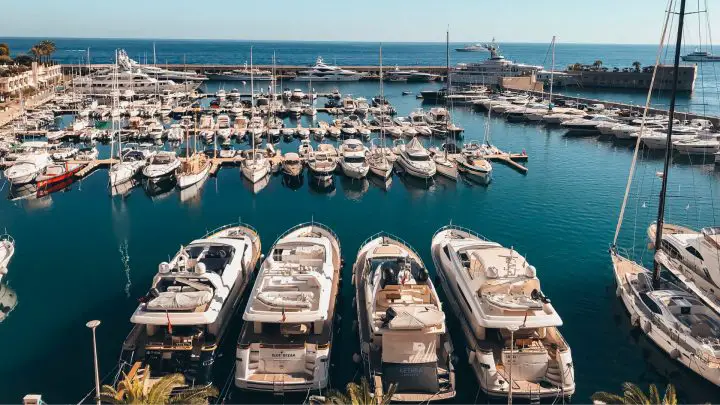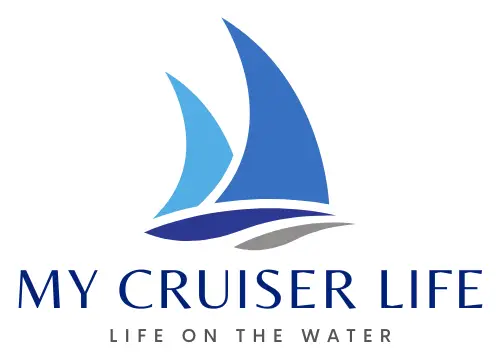The pontoon vs deck boat debate is like choosing between a floating living room and a water sports machine – and making the wrong call could cost you thousands in buyer’s remorse. Many boaters get caught up in flashy marketing or well-meaning advice from friends, only to discover their new boat doesn’t match their actual lake lifestyle. Whether you’re dreaming of lazy family afternoons or adrenaline-pumping water sports, the fundamental differences in design, performance, and cost between these two popular boat types will determine if you’re living your best boat life or counting down the days until you can trade up. The real-world performance numbers and hidden maintenance costs ahead will help you choose the boat that’ll have you saying “best purchase ever.”

Table of Contents
- Design & Construction
- Comfort and Space
- Performance & Handling
- Customization and Versatility
- Features and Amenities
- Boating Activities
- Maintenance and Cleaning
- Cost Comparison
- Safety and Stability
- Pros and Cons Summary
- Make Your Move: Pontoon or Deck Boat?
- FAQs – Pontoon vs Deck Boat
Design & Construction
When choosing between a pontoon and deck boat, you’re comparing a floating living room to a sporty speedster. Deck boats feature a traditional V-shaped hull designed to slice through water, while pontoon boats ride on two or three aluminum tubes that keep them stable on the surface.
Pontoon boats utilize welded marine-grade aluminum tubes with deck support channels and crossbeams, creating a signature stable platform. The V-hull on deck boats provides an aggressive stance and superior chop-handling ability.
Pontoons dominate in deck space thanks to their boxy design that can comfortably fit 16 people on larger models, compared to deck boats that typically max out around 12. Pontoon decks are uniformly flat along their entire length, while deck boats may have variations in deck height.
Comfort and Space
Pontoon boats typically have the edge in comfort due to their wide, flat decks and spacious layouts. You can walk around without feeling cramped, and larger pontoons can seat up to 16 people versus 12 for deck boats.
Pontoons provide a wide platform conducive to walking around, while deck boats’ V-shaped hulls offer ample seating with less walkable space. Their boxy design maximizes deck space for more seating, lounging areas, and storage. You can create different zones – conversation areas, lounging spots, and play spaces.
Pontoons also absorb wave force like car shocks, and sitting high in the water means less spray and drier passengers. Deck boats provide a bumpier ride in choppy conditions but excel when cruising at higher speeds on smooth water.
Related: Catamaran vs Pontoon — Facts Buyers Should Know
Performance & Handling
Here’s where these boats show their true colors. Deck boats can reach 70+ mph with powerful engines, while speedy pontoons top out around 40+ mph. Deck boats use V-hulls that cut through water, allowing quicker acceleration than traditional pontoons.
Deck boats create a wake they “surf” on, with rides getting smoother as speeds rise. They’re built for slicing through chop and maintaining speed in rough conditions. Pontoons are designed for a more sedate pace and need calmer waters for top speeds.
While pontoons require more fuel to match deck boat speeds, they’re much more fuel-efficient overall. Think of pontoons as hybrid cars that sip fuel, while deck boats drink it like sports cars.
Deck boats make tighter turns than pontoons, which need more turning space. However, pontoons are more stable when stopped, remaining relatively undisturbed by waves while deck boats rock sideways.
Customization and Versatility
Pontoon boats offer extensive customization options for different recreational needs. You can easily modify layouts with additional seating, upgraded sound systems, fishing gear, or even small grills for on-water BBQs.
Modern pontoon furniture provides tons of customization with built-in cup holders, USB charging ports, and adjustable recliners. You can install swivel fishing chairs, convert benches to lounges, or add modular benches with built-in coolers.
Deck boats also provide solid customization for multi-purpose use, including wakeboard towers, fishing equipment, or upgraded upholstery. However, they’re less customizable and diverse in floorplan variety compared to pontoons.
The difference is like comparing a Swiss Army knife to a dedicated tool – pontoons are versatile platforms that can be anything you want, while deck boats excel at specific activities within a more defined framework.
Features and Amenities
Both boats offer substantial storage space, but pontoons generally have more. Pontoons feature newer in-floor storage styles and even more space in the center of tritoons for larger, longer objects.
Pontoons can be equipped with built-in cup holders, snack compartments, umbrellas for shade, and easily accessible storage compartments. Popular upgrades include premium sound systems, collapsible changing rooms, LED lighting, and even fire pits for evening entertainment.
Deck boats come with integrated amenities built into the hull design rather than modular like pontoons. Due to their V-hull configuration, deck boats have less storage space than pontoons.
The key difference is that pontoon features tend to be more accessible and easier to add after purchase, while deck boat amenities are typically better integrated into the original design.
Boating Activities
Your choice depends on how you plan to spend time on the water. Pontoons are incredibly versatile for fishing, cruising, or hosting family gatherings. Fishing models include ample storage and special seating for easy casting.
Deck boats excel at water sports, with V-shaped hulls creating suitable wakes for skiing and wakeboarding. While a pontoon with 150 horsepower is adequate for tubing or water skiing, experienced users may want more performance.
Pontoons are great floating platforms for cocktails, parties, fishing, birdwatching, photography, and sightseeing. If speed and adventure are your style, deck boats are better. For lazy days, fishing, and stable entertaining, pontoons are ideal.
If your ideal day involves slowly cruising to a quiet cove, dropping anchor, and having everyone spread out for swimming, fishing, and socializing, choose pontoons. If you’re about getting to destinations quickly while pulling skiers, deck boats are calling your name.
Related: Pontoon Boat Brands to Avoid
Maintenance and Cleaning
Aluminum pontoons are far easier to clean and maintain than fiberglass deck boat hulls, which need wiping down after every day. Without meticulous gelcoat care, water spots become difficult to remove.
If a pontoon suffers damage, it can be removed and repaired with a replacement installed in the interim. Deck boat hulls require intensive cleaning to maintain gelcoat and may need costly repairs that sideline the boat.
Pontoons don’t require daily wipe-downs but are less durable, with most having up to 20-year lifespans. The maintenance difference is straightforward – pontoons are like pickup trucks for upkeep, while deck boats are luxury cars needing regular pampering.
Cost Comparison
Generally, deck boats cost more than pontoons, though luxurious pontoon models approach deck boat price points. Basic deck boats start around $10,000, while well-equipped models can cost $100,000.
Base model pontoons cost around $20,000, while luxury models easily reach $200,000. Engine choice alone can cost up to 50% of the boat’s price for either type.
Due to faster, more powerful engines, expect deck boats to cost more in fuel. However, pontoons only last about 20 years and depreciate rapidly, losing 85-90% of their value after a decade.
Pontoons are generally more budget-friendly upfront and for ongoing fuel costs, but don’t hold value like deck boats. Fiberglass hulls can have very long lifespans, so deck boats retain value much longer.
Safety and Stability
Pontoon boats are more stable when hit by waves, particularly at angles, while deck boats rock more. Pontoon construction sits higher due to metal basins underneath, allowing easier shallow water navigation.
Pontoons absorb wave force like car shocks, and sitting high means less spray and drier passengers. They’re better with young children, while deck boats suit adventurous teenagers.
The fiberglass V-hull’s central axis causes boats to rock with wind, waves, or passenger movement. However, deck boats excel in rougher conditions where V-hull design slices through waves effectively.
Safety-wise, pontoons are like minivans – stable, predictable, and family-friendly. The wide, flat deck with railings makes it harder for people to fall overboard. Deck boats are more like sports cars – they handle beautifully when driven properly, but require more attention in challenging conditions.
Pros and Cons Summary
Pontoon Pros: Maximum space and capacity (up to 16 people), superior stability, fuel efficiency, easier maintenance, highly customizable, better for entertaining and relaxing. More budget-friendly upfront and for fuel costs.
Pontoon Cons: Slower speeds (40 mph max), wider turning radius, 20-year lifespan, rapid depreciation (85-90% value loss in a decade).
Deck Boat Pros: Higher speeds (70+ mph), better wake for water sports, tighter turning radius, longer lifespan, better value retention. Superior handling in choppy waters.
Deck Boat Cons: Lower passenger capacity (12 max), higher fuel consumption, more expensive maintenance, less storage space, more intensive cleaning requirements. Less stable when stopped, rocks with wind and waves.
Make Your Move: Pontoon or Deck Boat?
Bottom line – it’s all about your vibe on the water. For a floating party pad that’s easy on the wallet and perfect for chilling with the crew, pontoons are your jam. For speed, water sports, and spending extra for that adrenaline rush, deck boats are calling your name. Pontoons win on space, stability, and savings – think lazy lake days and family fun. Deck boats dominate on performance and long-term value – perfect for thrill-seekers who want to go fast and look good doing it. Your perfect boat matches your lifestyle, not someone else’s opinion.
FAQs – Pontoon vs Deck Boat
What’s better, a deck boat or a pontoon boat?
It depends on your priorities. Pontoons are better for relaxing, entertaining large groups (up to 16 people), and fuel efficiency. They’re more stable and budget-friendly. Deck boats excel at water sports, higher speeds (70+ mph), and better value retention. Choose pontoons for lazy lake days and deck boats for speed and adventure.
What is the disadvantage of pontoons?
Pontoons are slower (40 mph max), have wider turning radius, and depreciate rapidly, losing 85-90% of their value in a decade. They also have a shorter 20-year lifespan compared to deck boats. While great for calm waters, they’re less suitable for rough conditions and serious water sports activities.
What are the disadvantages of a deck boat?
Deck boats hold fewer passengers (12 max vs 16 for pontoons), consume more fuel, and require intensive maintenance, including daily gelcoat cleaning. They’re less stable when stopped, rocking with wind and waves. They also cost more upfront and offer less storage space due to their V-hull design.
What is the difference between a boat and a pontoon boat?
Traditional boats use V-shaped hulls that slice through water, while pontoon boats ride on two or three aluminum tubes that float on the surface. This gives pontoons a flat, stable platform perfect for entertaining, while regular boats offer better speed and handling in choppy conditions but less deck space.
